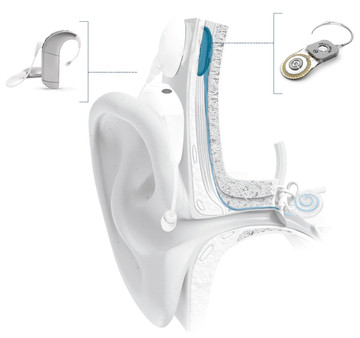
Happy International Cochlear Implant Day & World Hearing Day!
Considering Cochlear Implants?
Hearing loss affects millions of people of all ages around the world. For many, hearing aids provide a viable solution, but if you or a loved one experience significant hearing loss, hearing aids may offer little or no benefit. That’s when it’s time to consider cochlear implants (CI), a medical device technology that thousands of people around the world rely on, as a way to restore hearing.

Gathering information on cochlear implants can be overwhelming. We understand that every situation is unique, and every candidate has different goals and fears. A short conversation can guide you towards the solution that’s right before taking the next step on a lifelong decision.
Celebrating International Cochlear Implant Day (February 25) & World Hearing Day (March 3), Advanced Bionics Asia Pacific is offering a free consultation and a free eBook on cochlear implants to candidates considering a cochlear implant system.
Fill out the form below to schedule a free consultation and to download our free comprehensive guide to cochlear implants.
Offer applies only to candidates based in Asia Pacific countries* considering a cochlear implant. Offer valid until March 25, 2021.
You will be contacted by phone or email within 2 business days.
By submitting, you agree to Advanced Bionics' privacy policy.

What is a Cochlear Implant?

A cochlear implant is an electronic device designed to provide enhanced sound perception and the potential for greater speech understanding for children and adults with significant hearing loss.
A cochlear implant has external components, a sound processor, and a headpiece, which can be easily taken off and put on.
It also has internal parts, which are implanted during surgery and are not visible: the implant and the electrode array.
A cochlear implant works by bypassing the damaged or missing hair cells in the cochlea and stimulating the hearing nerve directly.
Why Do People Get Cochlear Implants?

Significant hearing loss can make people feel cut off from the hearing world. They miss the everyday sounds normal hearing people take for granted and can feel isolated and left out.
People get cochlear implants because they want to hear their best, be independent, and feel included. They want to take part in conversations, hear their children or grandchildren talk, listen to music, or simply enjoy the sounds of nature. They want to be confident that they can hear in all listening situations, even in noisy environments.
Parents choose cochlear implants for their children because they want them to hear the sounds of life. They want to provide their children with the opportunity to learn to listen, talk, and communicate freely and independently. They want their children to participate fully in the world of sounds that surrounds them.

Fun Fact
For more than 25 years, Advanced Bionics has helped nearly 100,000 ears in over 130 countries removed limitations for those otherwise isolated from the world of sound.

How Does a Cochlear Implant Work?

1
2
3
4
5
-
The microphones pick up sounds at the opening of the ear canal for the most natural listening experience.
-
The sound waves are converted into detailed digital signals by the sound processor.
-
Our headpiece sends the digital signals to the cochlear implant and electrode array in the inner ear.
-
The electrode array stimulates the hearing nerve.
-
The hearing nerve sends impulses to the brain, which interprets them as sounds.

FAQs on Cochlear Implants
References
-
028-M990-02 International AB Adult Master Brochure.
-
028-N058-02 International AB Pediatric Master Brochure.
-
https://advancedbionics.com/us/en/home/cochlear-implants-for-you/frequently-asked-questions.html
-
https://www.linkedin.com/pulse/new-chapter-advanced-bionics-victoria-carr-brendel